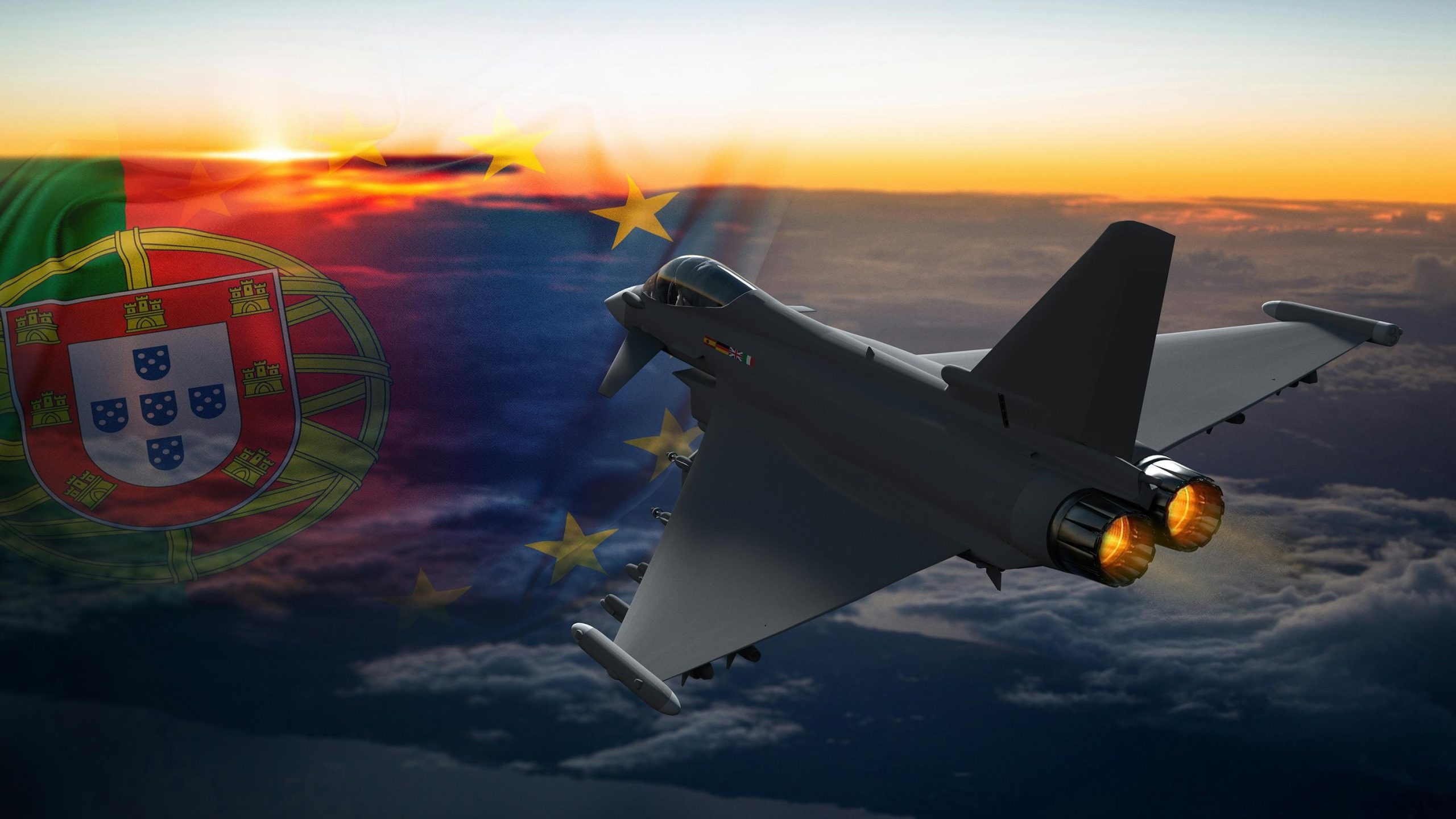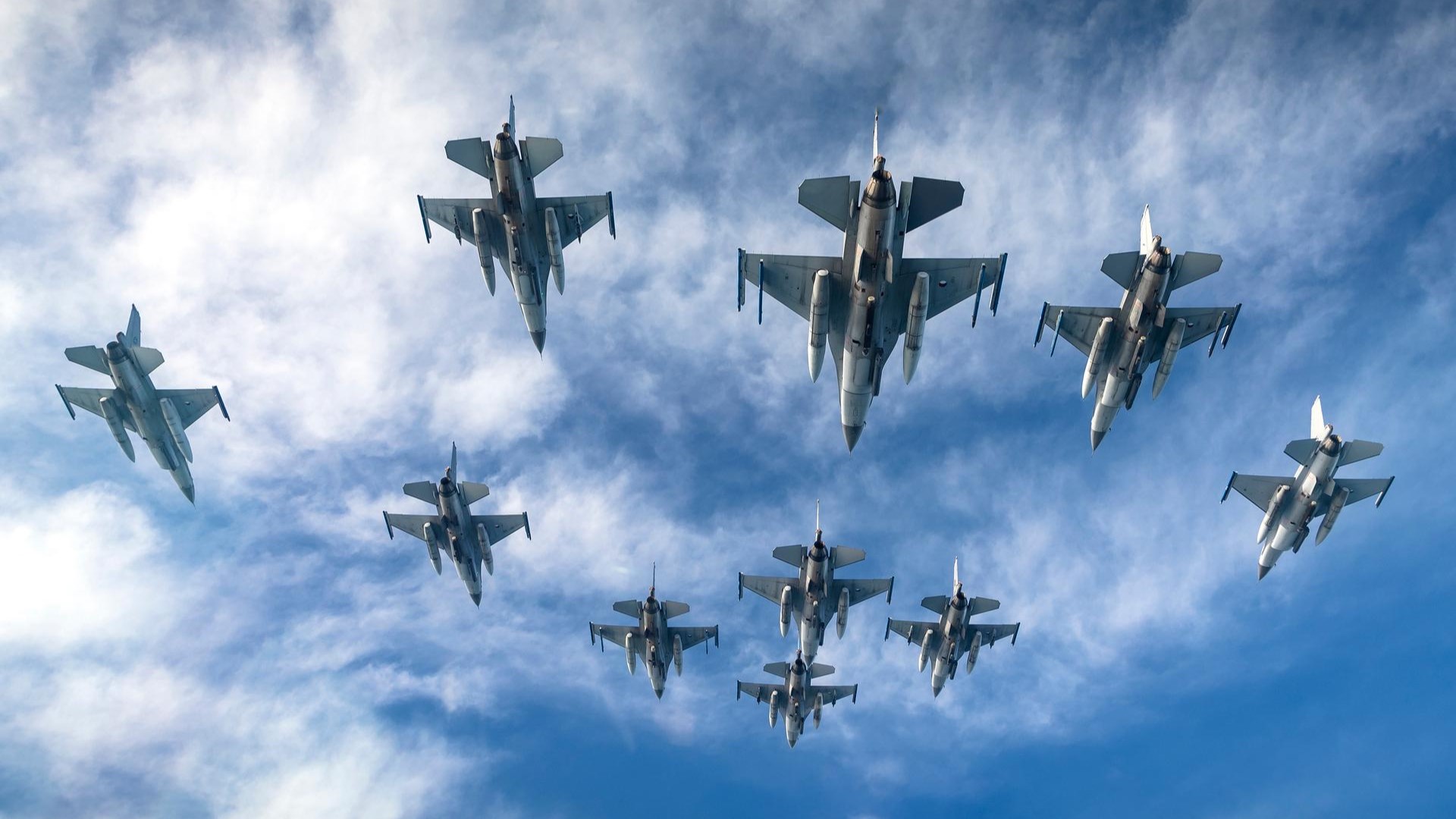As Portugal reconsiders plans to acquire the F-35, Airbus is preparing to offer the Eurofighter Typhoon as a replacement for the aging F-16 fleet.
Airbus Defense and Space announced on October 27, 2025 that it signed a Memorandum of Understanding (MoU) with the Portuguese Aeronautical, Space and Defense Industries Cluster (AED Cluster Portugal) to identify cooperation opportunities ahead of the upcoming replacement of the fighter fleet in the country. Earlier this year, Portugal said it was reconsidering its plans to acquire the F-35 Lightning II.
However, the country still needs to replace its aging fleet of F-16 Fighting Falcons. According FlightGlobalAt World Air Forces 2025, Portugal has a total of 25 F-16s in service, of which four are two-seaters, with at least 30 years of service.
Airbus Defense and Space and the Portuguese Aeronautical, Space and Defense Industries Cluster (AED Cluster Portugal) have signed a Memorandum of Understanding (MoU) to identify opportunities for cooperation ahead of the upcoming replacement of the fighter fleet in the country. 🇵🇹
In… pic.twitter.com/4yT0lAuaV9
— Airbus Defense (@AirbusDefence) October 27, 2025
According to Airbus, within the framework of this agreement, the basis has been laid for the launch of a series of studies in order to create a valuable industrial proposal to replace the current Portuguese fleet of F-16s with the Eurofighter Typhoon. Details are still unknown, but Portugal had already allocated €5.5 billion for the replacement, with the original plan being 27 F-35s.
The F-35 dilemma
In an interview with a Portuguese media Public Posted on March 13, 2025, Portuguese Defense Minister Nuno Melo ruled out the possibility of ordering the fifth-generation fighter, aligning with other European nations reconsidering their defense procurement strategies. The Minister directly pointed to the uncertainty surrounding the Trump administration as a key factor in the decision.
The comments followed Trump’s controversial comments about NATO after taking office, questioning members’ contributions and even suggesting the United States might not live up to its defense commitments, which has raised alarms across Europe. Among the main concerns, the Minister mentioned the predictability of allies and “the limitations of use, maintenance, components and everything that has to do with guaranteeing that the planes will be operational and used in all types of scenarios.”
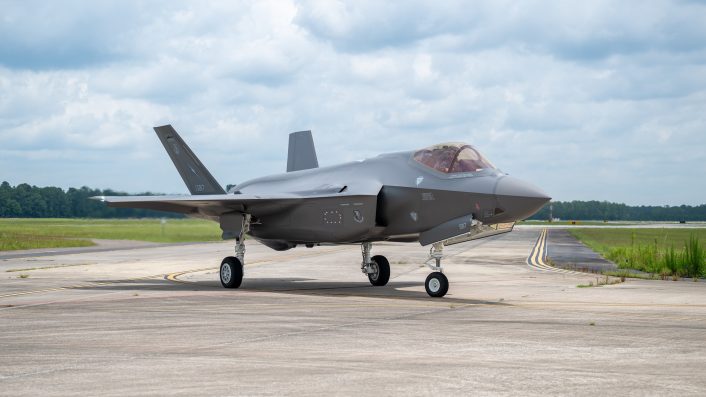
For this reason, the Minister added: “There are several options that must be considered, particularly in the context of European production and also taking into account the return that these options can have for the Portuguese economy.” This suggested a possible evaluation of a substitute manufactured in Europe.
Eurofighter proposal
The MoU between Airbus and AED Cluster Portugal is paving the way to launch the Eurofighter Typhoon to the Portuguese Air Force. Airbus maintains good cooperation with Portugal and has a 46% ownership stake in the Eurofigher consortium, which represents both Germany and Spain.
“At a time when European sovereignty and industrial autonomy are at the forefront of our strategy, Airbus firmly believes that the Eurofighter is the best option for this replacement,” says José Luis de Miguel Cortés, European director of Airbus Defense and Space.
The Eurofighter Typhoon is Europe’s largest individual defense programme, with 780 aircraft ordered by ten countries and 600 already in service. Türkiye became the latest customer and signed an agreement to purchase 20 aircraft on October 27, while many of the partner countries are acquiring new batches of the aircraft.
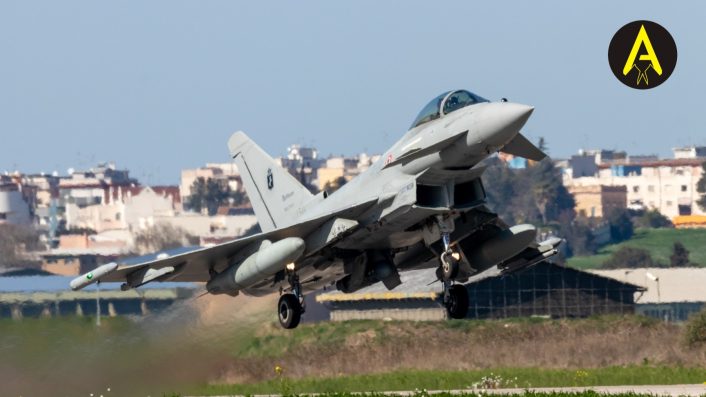

The Typhoons launched to Portugal would likely have the same configuration that Italy, Germany and Spain are currently acquiring. This includes the new European Common Radar System (ECRS) Mk 1 AESA (Active Electronically Scanned Array) radar and Phase 4 Enhancement (P4E) configuration.
P4E contains a number of new developments, including an automated sensor management capability for all Typhoon radars, allowing the capabilities of the new AESA radar to be exploited to complete multiple simultaneous tasks, while reducing pilot workload. The package is also said to include an improved cockpit interface and improved radio frequency interoperability (RFIO), which will improve survivability and lethality, as well as DASS (Defensive Aid Subsystem) upgrades.
The original plan
In another long interview with a Portuguese newspaper News Diary Published on April 12, 2024, the Chief of Staff of the Portuguese Air Force, General João Cartaxo Alves, confirmed the Portuguese Air Force’s plan to replace the F-16 with the Lockheed Martin F-35 Lightning II aircraft, stating that the transition had already begun.
General Cartaxo Alves stated that the decision was aimed at staying in line with the majority of European allies who have already begun the transition to the F-35, as part of their strategic efforts. It should be noted that Portugal’s acquisition of the F-35 has always been somewhat controversial.
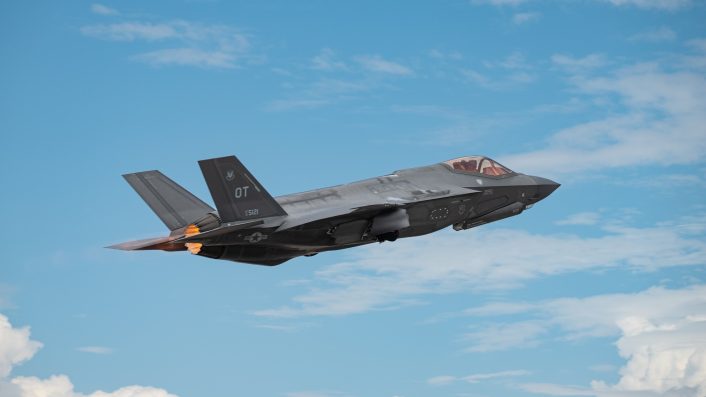

In April 2024, Air Force Chief of Staff General João Cartaxo Alves confirmed that the service was in a “transition” phase towards the stealth fighter, reflecting decisions made by several NATO partners. The head of the Portuguese Air Force also added that the transition to a new fighter aircraft would last approximately two decades, with an estimated expenditure of 5.5 billion euros allocated to this program.
Cartaxo Alves’ statements also made headlines in 2023: At a military conference on airlift and refueling in Lisbon, the Portuguese Air Force chief of staff publicly acknowledged that Lockheed Martin’s fifth-generation fighter was a suitable replacement for the country’s aging F-16 fleet. However, the enthusiasm was quickly tempered by the government.
The Portuguese Ministry of Defense wasted no time in clarifying that there was no formal procurement process. “This is a forward-looking vision, so there is currently no process to purchase aircraft to replace the F-16,” Defense Ministry spokesperson Helena Carreiras said in a statement to Breaking the defense.
Fast forward to March 2025, with the F-35 seemingly off the table, Portugal’s next move remains unclear. When asked about the possibility of acquiring Dassault Rafale, Melo declined to comment.
Meanwhile, in June 2025, Lockheed Martin and the AED Cluster Portugal signed a memorandum of understanding identify potential Portuguese companies for future industrial activities. “This partnership aims to integrate local companies in the production, research, development, maintenance and training of the world’s most advanced stealth fighter,” the US embassy in Portugal said at the time.
